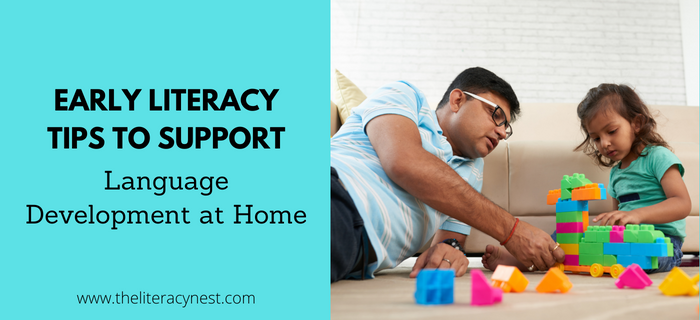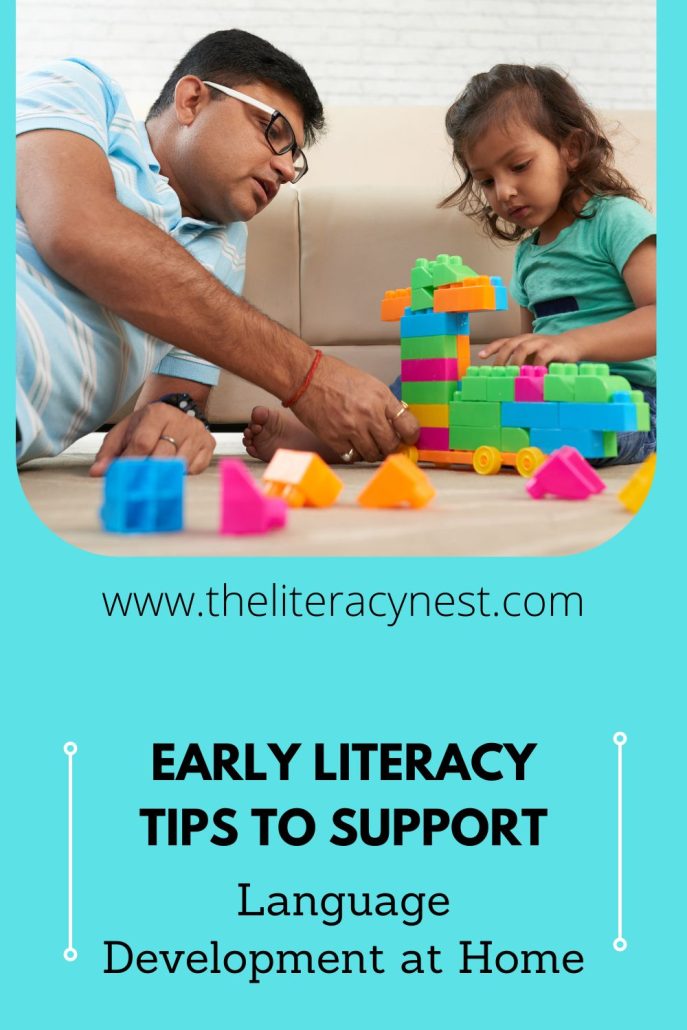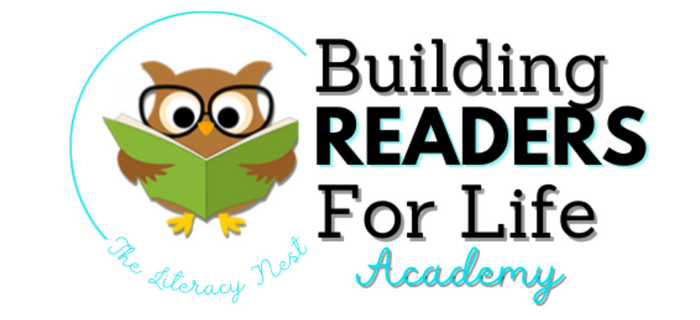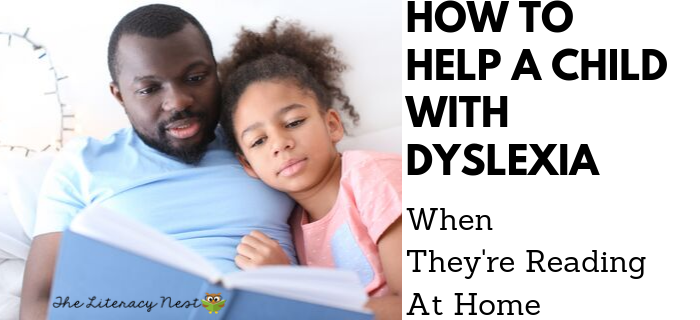Early Literacy Tips to Support Language Development at Home

When we talk about language or English Language Arts and dyslexia, we are most often referring to reading and writing. But truly, language encompasses more. When students learn a foreign language, reading, writing, speaking, and listening are the necessary skills. For young children developing their language skills, these are the same categories. In general, speaking and listening skills come before reading and writing. Early language learning sets a foundation upon which later literacy skills are built. Follow these early literacy tips at home to get started!
This is the first post in our Parent Outreach series. In future posts, we’ll cover:
- Tips for Supporting Executive Function Skills at Home
- Tips for Helping Your Child with Reading at Home
- What Matters When Supporting Your Challenged Reader at Home
Language Development in the Early Years
Language follows a predictable developmental process and serves numerous functions. Most importantly, language is a means of communication. Language allows us to connect with other people and our environment. Language helps us make sense of the world around us.
- The development of language skills begins even before birth. Infants are learning to communicate through eye contact, babbling, crying, and touch.
- By about a year, babies are able to understand simple directions, look in the direction of a sound, copy sounds, and say a few words. Language skills grow quickly.
- By 18 months most children know about 10 words and recognize familiar objects and people.
- By 24 months, toddlers know over 50 words, use simple phrases, and ask short questions. Caregivers understand them about half the time.
- Preschoolers have a language explosion. 3 to 4-year-olds know 250-500 words. By 4-5 years old, their vocabulary has expanded into the thousands. 3 and 4-year-olds answer questions, tell stories, understand simple directions, and use complete sentences. Most 4-year-olds speak clearly enough to be understood.
- By 5 children begin to understand other points of view, and take turns in conversation, and grammar is mostly in place with some overgeneralizations. Children at 5 speak in complex sentences and follow 2-3 step directions, understand time order words, and can use words to talk about emotions. Although they still mix up some speech sounds, by 5 most children are understood by most adults most of the time.
Oral language skills are innate, but literacy is not. However, there is a lot we can do as parents to encourage language development. Let’s take a look at some early literacy tips to support language development at home.
Read more about How To Help Younger Students Build Phonemic Awareness Skills!
Here are Three Early Literacy Tips for Supporting Language Development at Home:
1. It is never too early to talk to children.
I used to engage in conversations with my kids in the grocery store about what I was putting in the cart, what snacks they were interested in, or whether they thought the strawberries looked good today. Of course, they didn’t answer when I first started doing this, but I kept talking anyway. Later they had play conversations by babbling back to me.
There is a viral video of a father sitting on a couch having an engaging conversation with his baby without the baby ever speaking an actual word. The father responds to the tone, and gestures and they take turns just as if it is a mature conversation. This video demonstrates so beautifully what encouraging language development looks like. As children become more fluent speakers, asking why and how questions, or engaging their imagination is more likely to elicit conversation.
2. The Power of Play!
I sometimes worry as academic skills get pushed down to Kindergarten and preschool, that the value of play on oral language development is lost. Play is the work of childhood and indeed helps build language.
Activities such as:
- Building a fort
- A walk in nature
- Playing dress up
- Cooking
- Running errands
are all excellent opportunities to build oral language skills in developmentally appropriate ways, while building gross motor skills.
Interactive activities such as:
- Board games
- Arts and crafts
- Finger plays
- Stringing beads
- Sensory play
encourage fine motor skills and conversation at the same time.
Dramatic play yields amazing opportunities for language use both with adults and peers. When children are playing house, store, or school, the resulting uses of language are spontaneous and purposeful, and genuine.
They are:
- forming questions
- trying to communicate clearly
- practicing conversational etiquette
- steering the play through their language.
3. Read Alouds
In addition to narrating your day, one of the best ways to build language skills is by reading aloud to your children. Picture books are full of interesting language usage, vocabulary, meter, and rhyme. Listening to audiobooks is another valuable way to increase language exposure.
The value of singing and music to the preschooler can’t be overstated.
- Nursery rhymes
- Chants
- and songs
are effective ways to build phonological awareness.
Playing games with language such as:
- I spy
- Going on a scavenger hunt
- Hidden pictures
- Concentration
are also great ways to encourage language development.
Looking for support teaching phonological awareness with a special emphasis on phonemic awareness? Check out our Phonological Awareness Curriculum Multisensory Reading Intervention!
The Greatest Gift…
One of the greatest gifts we can give our children is to prepare them for learning to read by talking to them a lot. Early language skills are critical to the development of vocabulary and background knowledge. Children exposed to more words as preschoolers through singing, talking and listening had higher reading comprehension as 3rd graders. Strong receptive and expressive vocabulary in the preschool years is a predictor of reading comprehension in 3rd grade.
Download a printable version of our guide to Supporting Early Language Development at Home.
In short, children who have lots of experiences with both speaking and listening during their early years are more prepared for reading and writing when they start formal schooling. Hope you’ve found these early literacy tips helpful!
To learn more about how to support growing readers and writers at all stages, sign up for Building Readers for Life Academy. Both educators and families are welcome!
Building Readers for Life Academy is a monthly membership program that empowers educators AND families by diving into structured literacy and strategies for ALL learners. With BRFL Academy, you’ll learn what it takes to help EVERY student become a reader for life.




